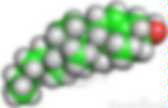

Managing Cholesterol Levels | CRESTOR® (rosuvastatin calcium) Cholesterol is a fatty substance, also called a lipid, that's produced by the liver. It's also found in foods high in A Closer Look So how can something your body needs be harmful? Well, not all cholesterol is considered bad. There are three main components doctors evaluate when you have a blood test to check your cholesterol levels. They look at But, the fact is that cholesterol can be harmful to your health when there’s too much of it in your blood.
Everyone with high cholesterol needs to keep it under control, but it may be even more important for some groups of people, who have additional risk factors. Diabetes High blood pressure Family history of early heart disease Age Obesity Smoking If you fall into any of the groups above, you may be at increased risk for plaque buildup in your arteries. What’s Your Cholesterol Goal? Managing high cholesterol may be different for you, depending on your medical history and your health. Cholesterol Guidelines DesirableBorderline highHigh. LDL (Bad) Cholesterol: Cholesterol Basics. Important Risk Information About ZETIA (ezetimibe) ZETIA is a prescription medicine and should not be taken by people who are allergic to any of its ingredients.
ZETIA can be taken alone or with a statin. Statins should not be taken by women who are nursing or pregnant or who may become pregnant, or by anyone with liver problems. If you have ever had liver problems or are pregnant or nursing, your doctor will decide if ZETIA alone is right for you. Unexplained muscle pain or weakness could be a sign of a rare but serious side effect and should be reported to your doctor right away.
You are encouraged to report negative side effects of prescription drugs to the FDA. Please read the Patient Information for ZETIA and discuss it with your doctor. Cholesterol: Top five foods to lower your numbers. Cholesterol: Top 5 foods to lower your numbers Diet can play an important role in lowering your cholesterol. Here are five foods that can lower your cholesterol and protect your heart. By Mayo Clinic Staff Can a bowl of oatmeal help lower your cholesterol? How about a handful of walnuts or even a baked potato topped with some heart-healthy margarine? A few simple tweaks to your diet — like these, along with exercise and other heart-healthy habits — may be helpful in lowering your cholesterol. 1.
Oatmeal contains soluble fiber, which reduces your low-density lipoprotein (LDL), the "bad," cholesterol. Soluble fiber can reduce the absorption of cholesterol into your bloodstream. 2. Eating fatty fish can be heart healthy because of its high levels of omega-3 fatty acids, which can reduce your blood pressure and risk of developing blood clots. The American Heart Association recommends eating at least two servings of fish a week. Mackerel Lake trout Herring Sardines Albacore tuna Salmon Halibut. What is the quickest way to lower cholesterol? Deepening smile lines and silver locks may be inevitable features of growing older, but rising cholesterol doesn't have to be. And while higher cholesterol is often a consequence of aging, young people can have it too. But no matter your age, it poses a big health risk.
That's because unhealthy cholesterol levels can boost your risk of heart attacks, strokes, and other problems. Fortunately, you can do something about it. "Unlike your age and your genes, cholesterol levels are risk factors that you can often change," says Jorge Plutzky MD, director of the Vascular Disease Prevention Program at Brigham and Women's Hospital in Boston. Lower Cholesterol: 4 Ways to Fast Results According to experts, there are four basic ways to get your cholesterol where you want it: Eating a healthy diet.
While each of these works, some people have more success with one than another. Know Your Cholesterol Numbers So let's start with some basics. LDL is "bad cholesterol. " 1. How much does diet help? 2. 3. 4. Eating Your Way to Lower Cholesterol. What Is The Best Way Lower Blood Cholesterol? | ehealthMD. Making gradual and permanent changes in your diet and lifestyle can help you lower your cholesterol levels. Not only will these changes reduce your risk for developing heart disease, but they will also reduce your risk for other serious conditions such as high blood pressure, cancer, stroke, and diabetes. The main lifestyle changes to help you lower your cholesterol levels are: Reduce fat and cholesterol in your diet.Eat more foods rich in carbohydrates and fiber, such as fruits, vegetables, and whole grains.Increase your level of physical activity.Maintain a healthy body weight.
In addition to lowering cholesterol levels, if you smoke cigarettes or have high blood pressure, quitting smoking or moderating your sodium intake can also significantly reduce risk for heart disease. Of course, it is unrealistic to expect to make many lifestyle changes all at once. When making changes, you need to pace yourself. All of the above changes are healthy for the entire family. Reducing Total Fat Meats: Lower Cholesterol Naturally | Learn Natural Ways to Lower High Cholesterol Online! How to lower your cholesterol absolutely free (no prescription required) Department of Pharmacology. Irina Pikuleva, Ph.D. Professor Institute of Pathology 2085 Adelbert Road, room 303A Cleveland, OH 44106 Phone: (216) 368-3823 Fax: E-mail: irina.pikuleva@case.edu Research Cholesterol is essential for life in mammals. The four major cytochrome P450 enzymes that initiate cholesterol degradation in different tissues. We are trying to understand how cholesterol-metabolizing P450s function at the molecular level, what roles they play in the development of different diseases, and whether these enzymes could serve as targets for cholesterol lowering medications.
Solvent accessible area of the active site of substrate-free (orange) and cholesterol-3-sulfate-bound (blue) CYP46A1. The second project is based on studies by others showing that P450s 27A1, 11A1, and 46A1 are expressed in the retina. Selected Publications Mast N, Liao W-L, Pikuleva IA, Turko IV.